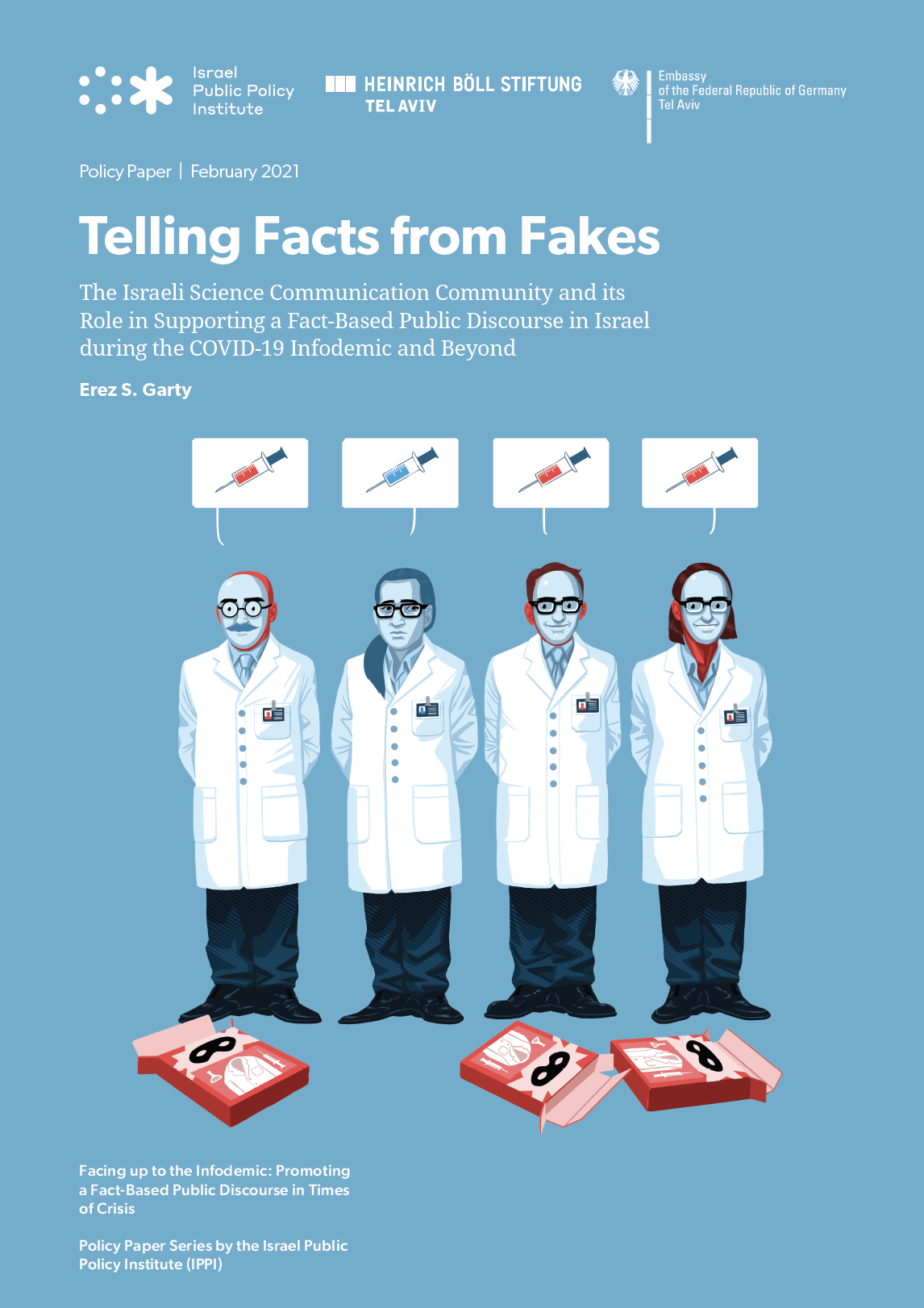
Share this Post
Israeli Science Communicators Supporting a Fact-Based Public Discourse
Science communication comes with its challenges, due to the fact that scientific studies must convey their findings accurately while at the same time being appealing and compelling to the targeted audience. Since the start of the COVID-19 pandemic, science communication has faced even more challenges. There is a dilemma of needing to communicate accurate and reliable information while simultaneously having little information available, contradicting studies, and dealing with the overwhelming amount of disinformation on social media.
In Israel, these challenges are exacerbated by the political crisis and the Ministry of Health’s lack of effective communication, which allows the possibility for other entities to become involved and create more harm than good. Despite Israel having a small science communication community, it is rapidly growing and providing creative solutions to bolster the need for reliable and comprehensible science.
This policy paper describes the Israeli digital science communication and journalism scene, as well as the challenges science communication faces during the COVID-19 crisis. In addition, this paper discusses how the science community has attempted to bridge the gaps of trust created by these challenges, and how this could have happened differently.
Recommendation:
Establish a center that would disseminate accurate information and challenge false claims for the benefit of decision-makers, the media, and the general public. This center would involve the following groups:
- The general public: citizens from all age groups sharing information via social networks. For this group, the center will focus on the known and the unknown, and why the government pursues certain policies and goals. In addition, there should be a fake news hotline that will allow individuals to report suspicious messages and read about different topics such as herd immunity. Its contents will need to be adapted and distributed accordingly for different sectors of the population, such as Orthodox Jews and Arabs.
- The media: individuals and organizations spreading news to the public. For this group, the center will serve as a hub for discovering new occurrences in science, professional analysis of the data, lists of professionals that can be interviewed on each subject, and criticism on irresponsible reporting.
- Decision makers: politicians and government officials, will be able to find reviews on various subjects written by professionals. By utilizing this data, they will be able to discern where the public is struggling. In addition, the center will provide critiques of disinformation or false representation of data spread by politicians.
————————————————————————————————————————————————–
The Israel Public Policy Institute (IPPI) serves as a platform for exchange of ideas, knowledge and research among policy experts, researchers, and scholars. The opinions expressed in the publications on the IPPI website are solely that of the authors and do not necessarily reflect the views of IPPI.
Download Full Publication
Policy Paper - Battling Misinformation With Science

Share this Post

Data, Algorithms, and Ethics: Calculating instead of deciding
Data and Algorithms “Under the modern conditions of data processing, the free development of personality presupposes the protection…

Digital Campaigns’ Trends in the General Elections for the 24th Knesset
Introduction: Algorithmic Campaigns Social media platforms have significantly changed the ways in which political campaigns are run, due…

A Thriving Digital Public Sphere – The Overlooked, Yet Critical Role of Political Parties and Politicians
Introduction – an online public sphere under attack with tech platforms at the center Escalating hate speech online…
